This small and delicate Dou Cai Pi Qiu Hua Gaiwan is meticulously crafted with the technique of clashing colour.
As we all know, Doucai is a precious art form in traditional Chinese porcelain craftsmanship. It originated and was fired during the Xuande period of the Ming Dynasty, and Dou Cai from the Chenghua period of the Ming Dynasty is highly esteemed. Dou Cai is a type of decoration that combines underglaze blue (qinghua) and overglaze colour painting.
Dou Cai involves applying mineral pigments onto the previously fired underglaze blue porcelain, filling in the gaps left by the underglaze blue patterns and colouring the space within the outline of the underglaze blue design. The porcelain is then fired in a lower-temperature kiln (800°C). Dou Cai is renowned for its vibrant and varied colour palette, as well as its refined and sophisticated decorative style that reflects the aesthetic taste of the Ming Dynasty.
The decorative pattern of Pi Qiu Hua (皮球花), also known as little tuan hua (小团花) or embroidery ball flower, evolved from the traditional tuan hua pattern on porcelain. This pattern has been present since the Sui Dynasty, and it combines abstract and representational elements. It takes various forms, resembling a spherical shape, hence the name Pi Qiu Hua (皮球花).
The decorative patterns on Chinese porcelain always carry auspicious meanings. Since the Pi Qiu Hua pattern originated from tuan hua, it inherits the traditional tuan hua motifs such as tuan long (团龙), tuan feng (团凤), and tuan hua (团花). These traditional motifs symbolize the abundance and beauty of life.
This beautiful Gaiwan, with its vibrant colours and exquisite craftsmanship, is an eye-catching presence wherever it is placed. Imagine having a cup of spring tea by using this charming Gaiwan, it could be the most delightful experience for a day!





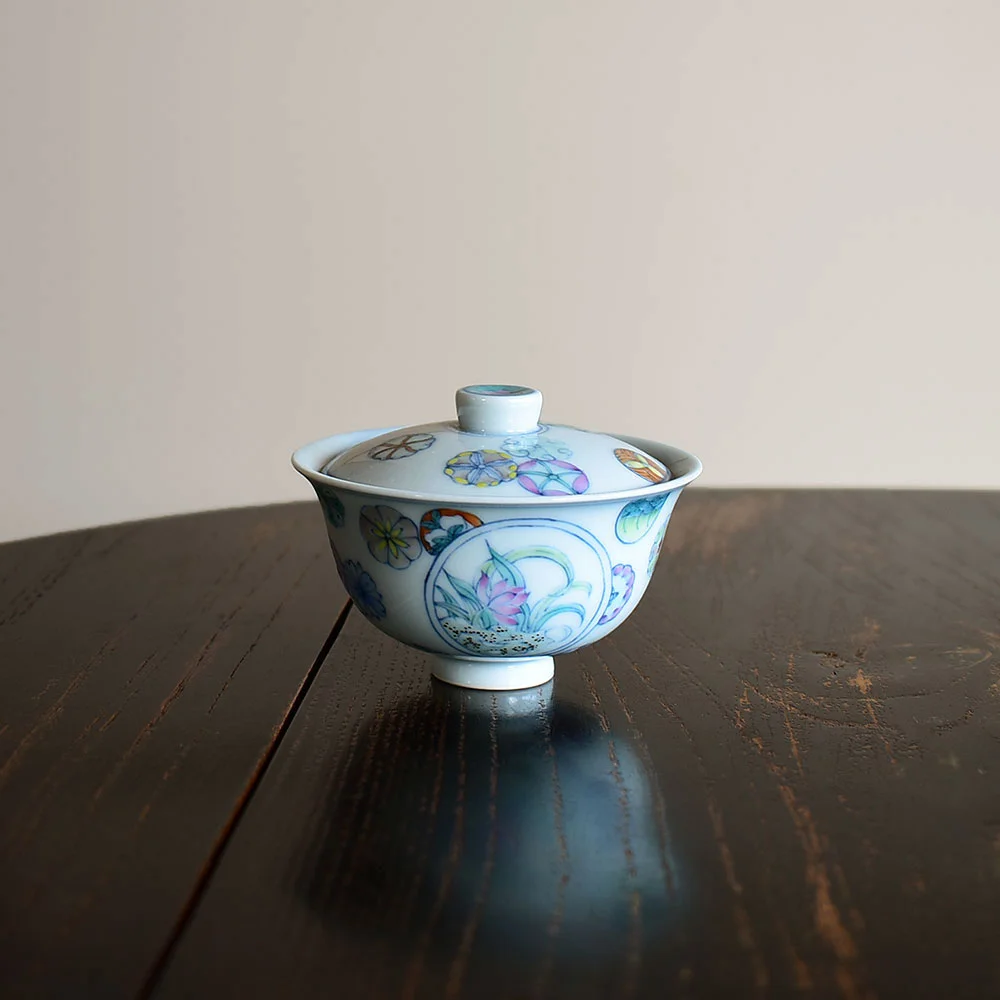
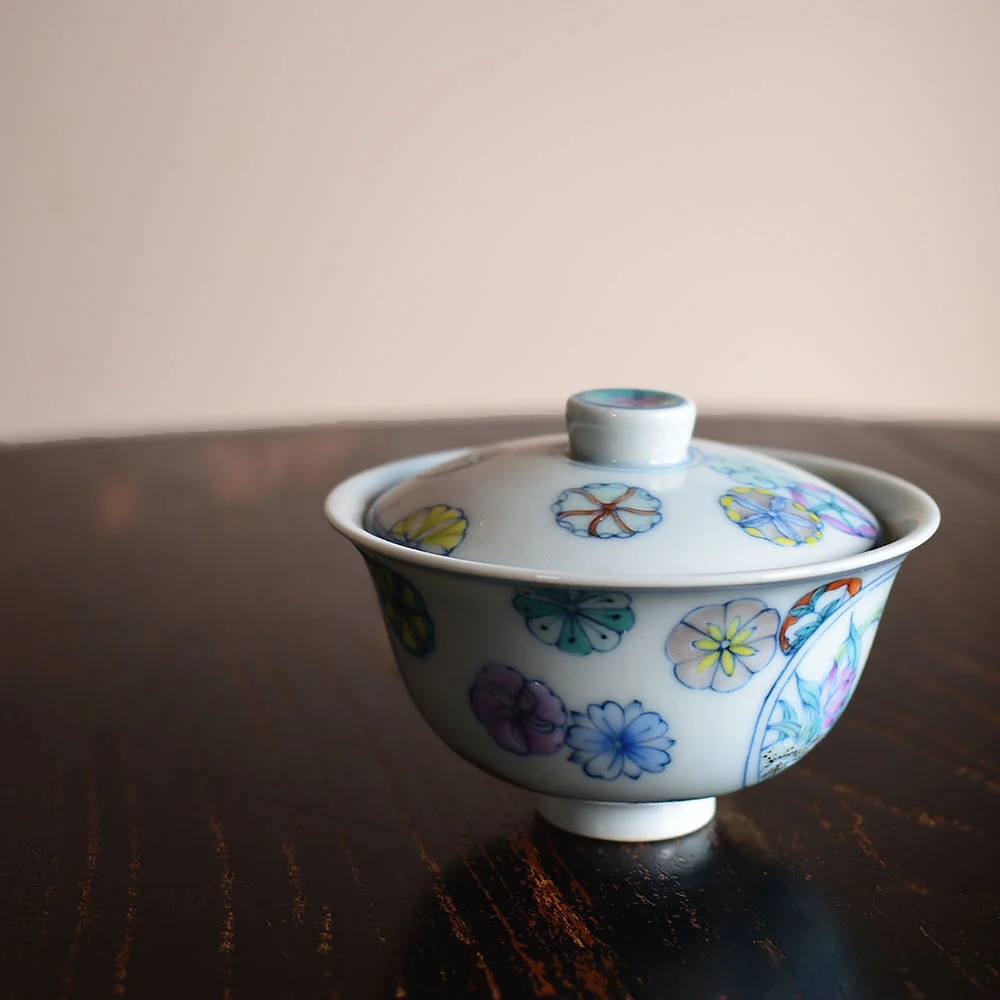

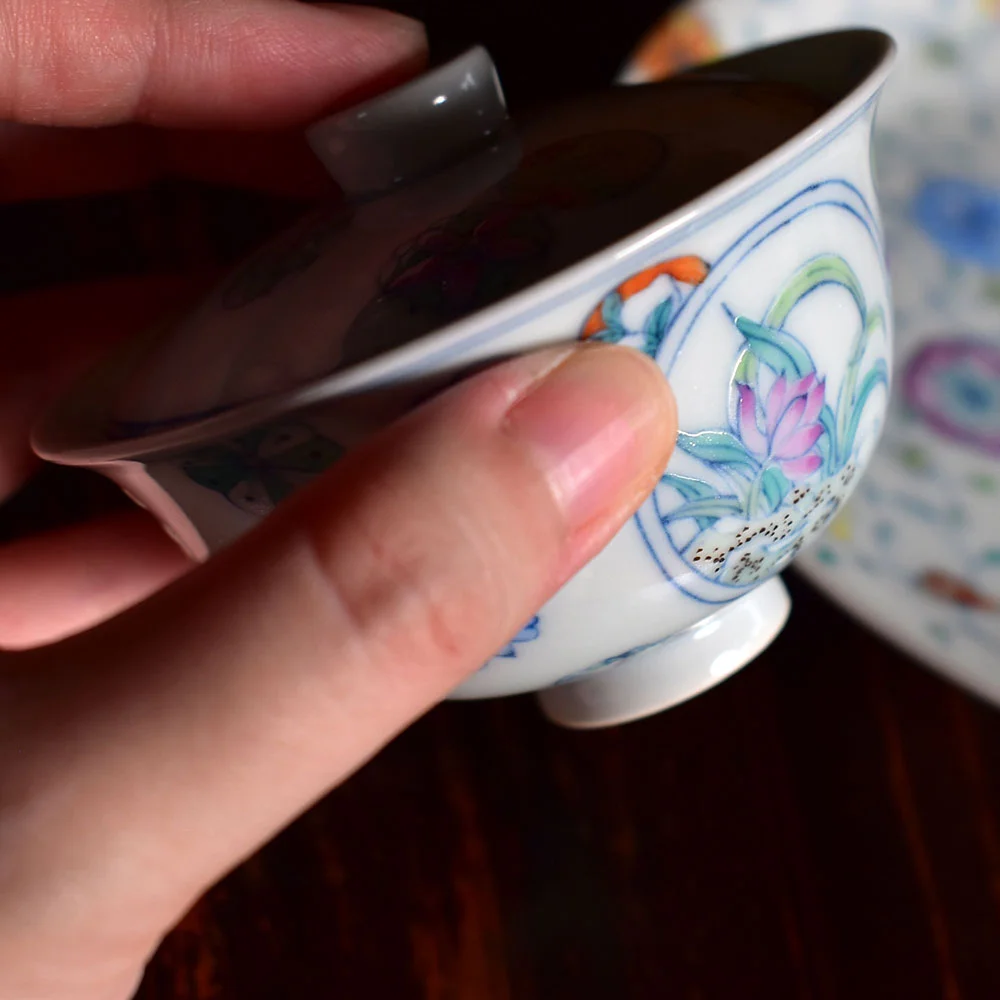
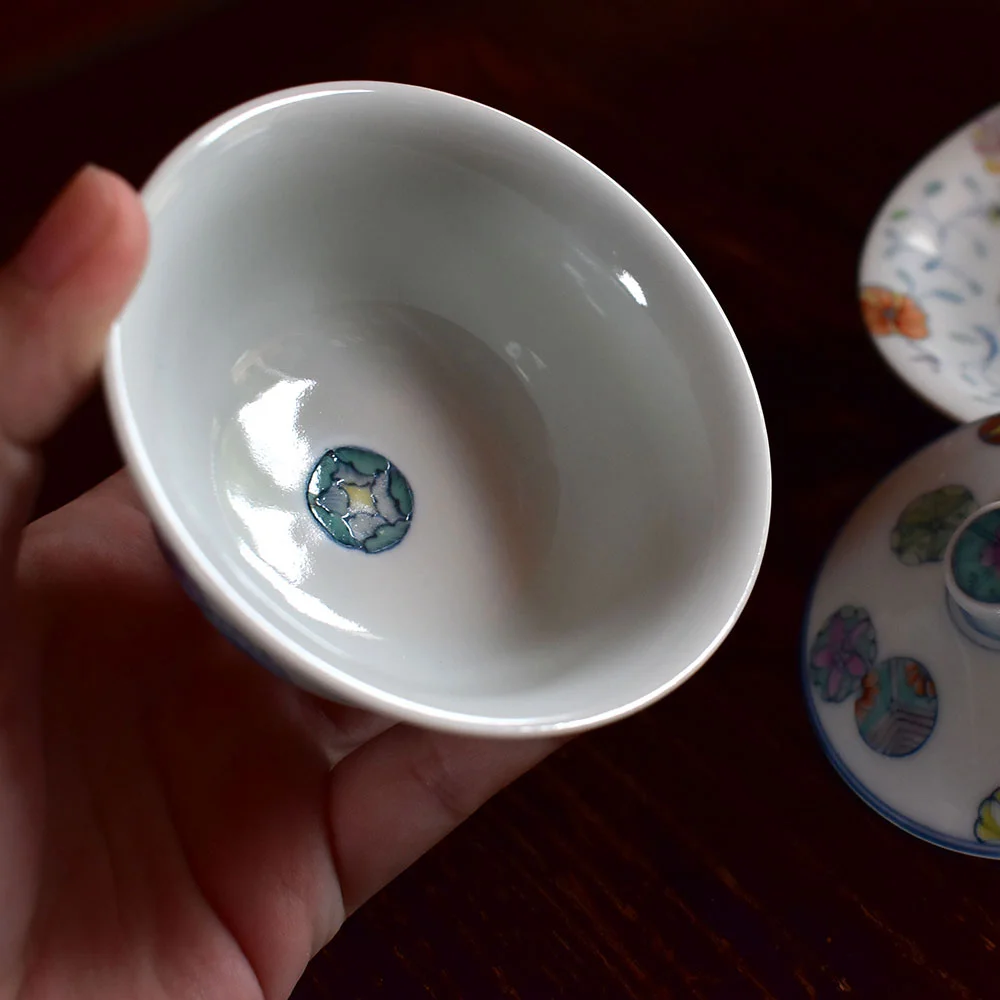


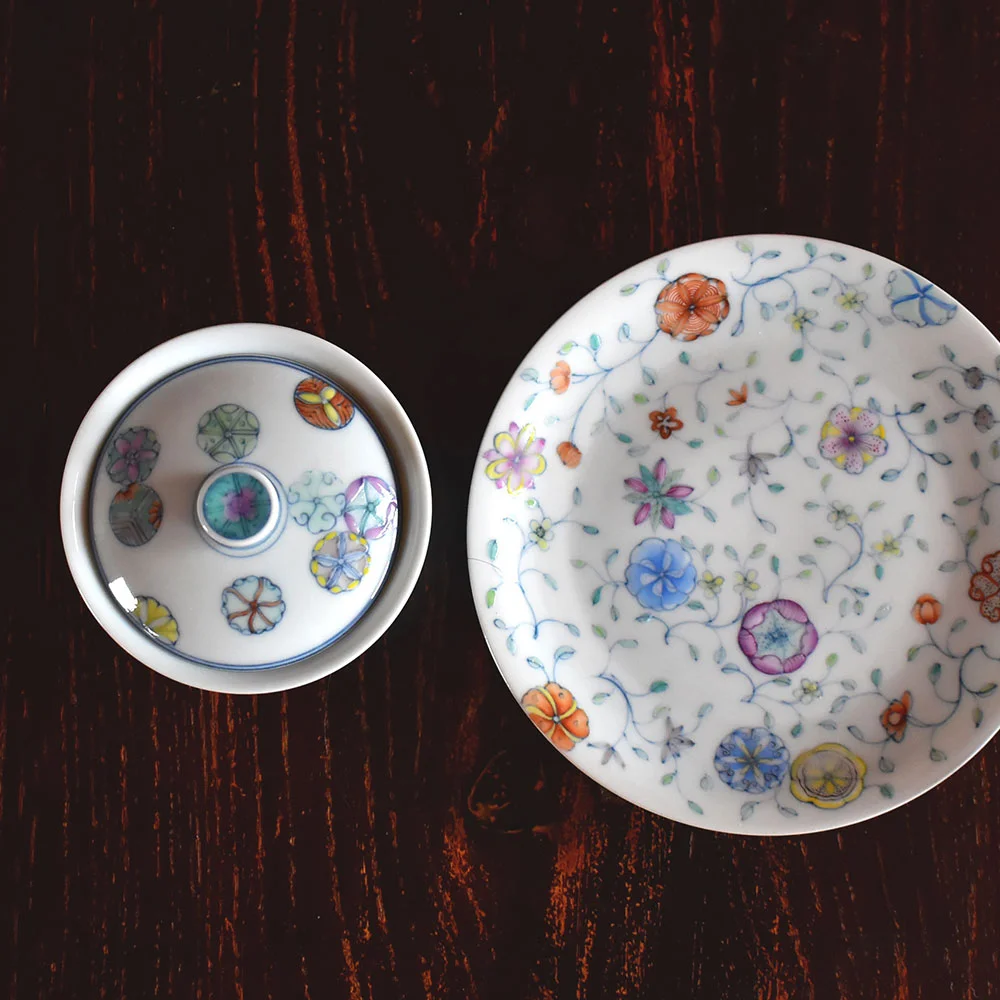
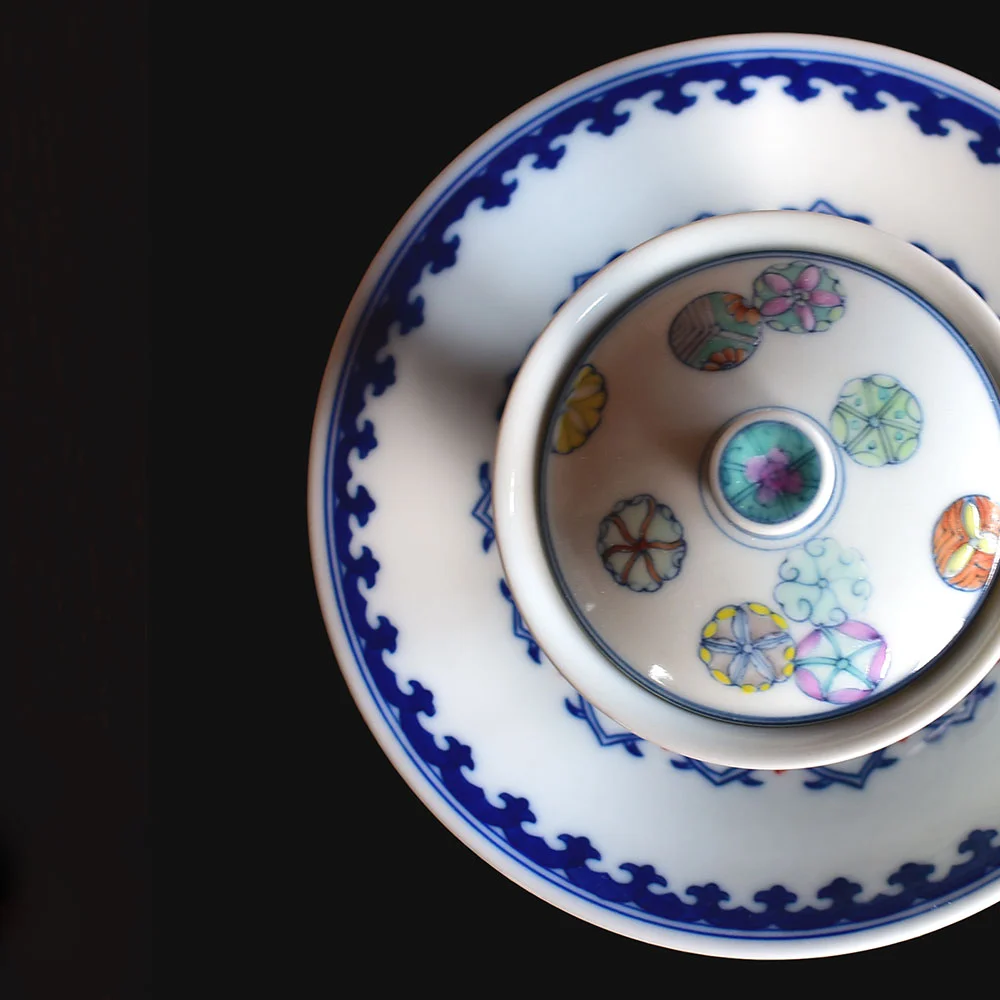


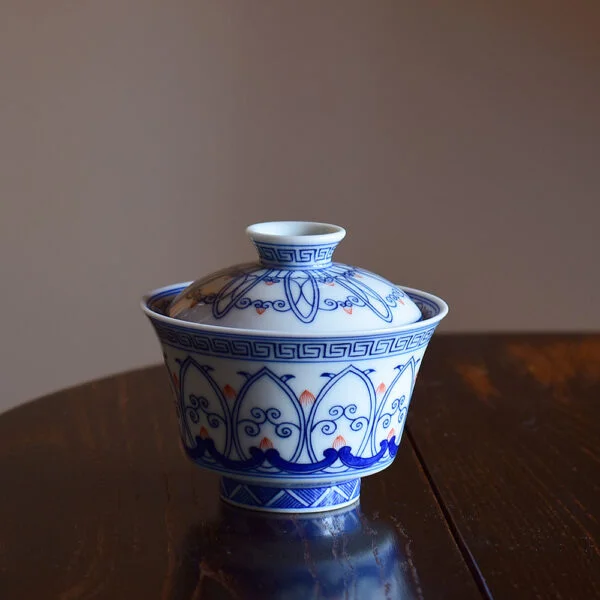
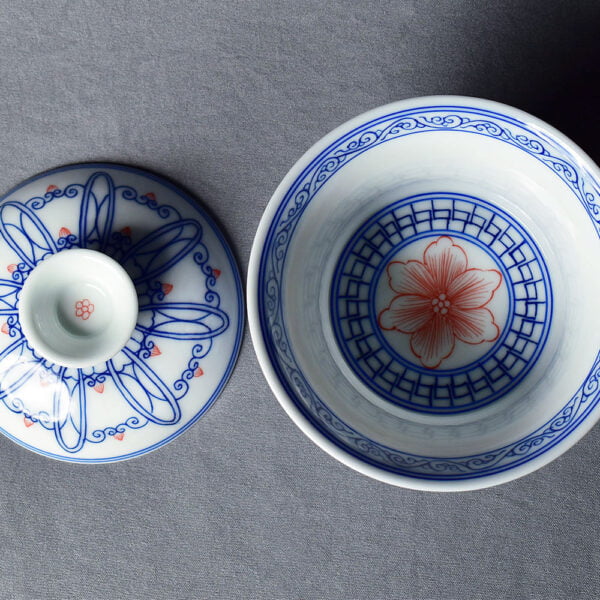

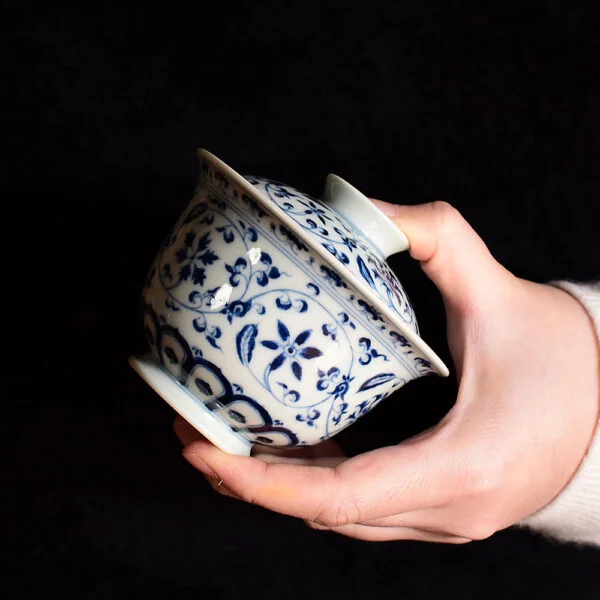
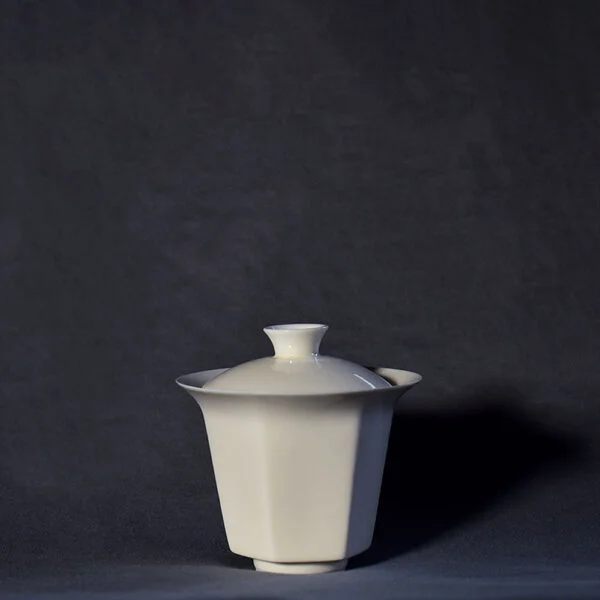
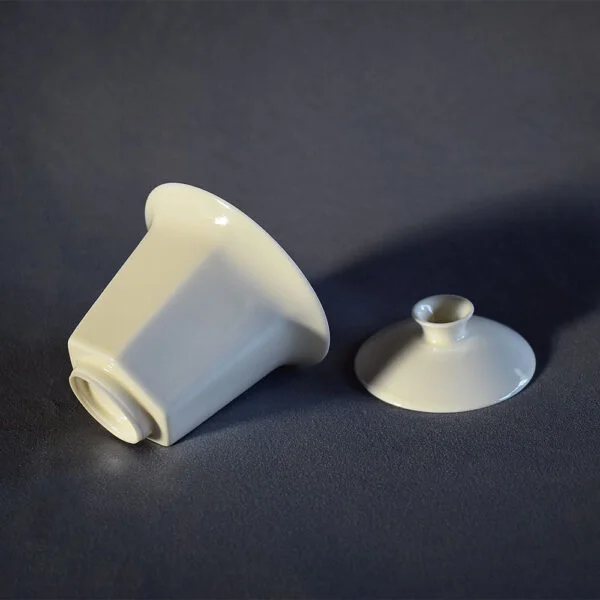
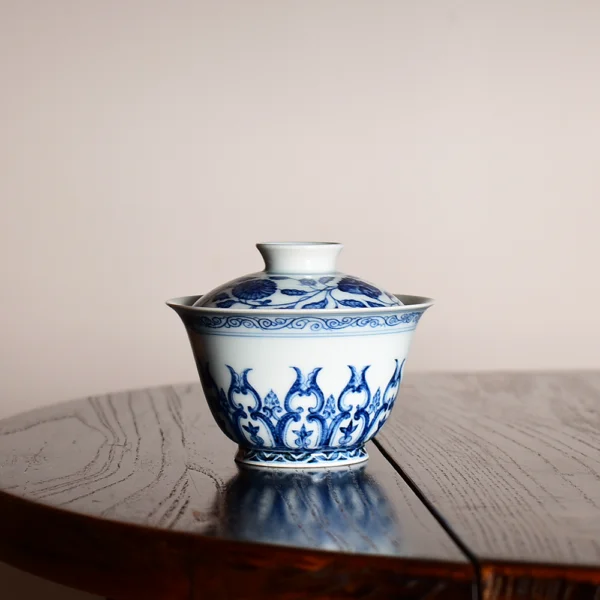
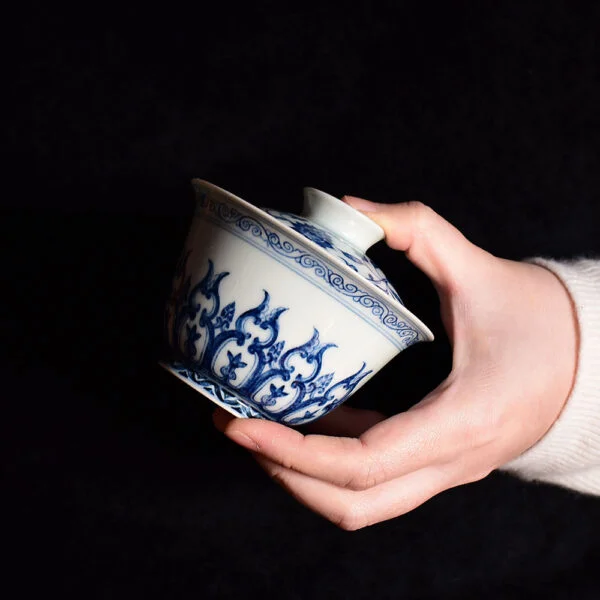
There are no reviews yet.